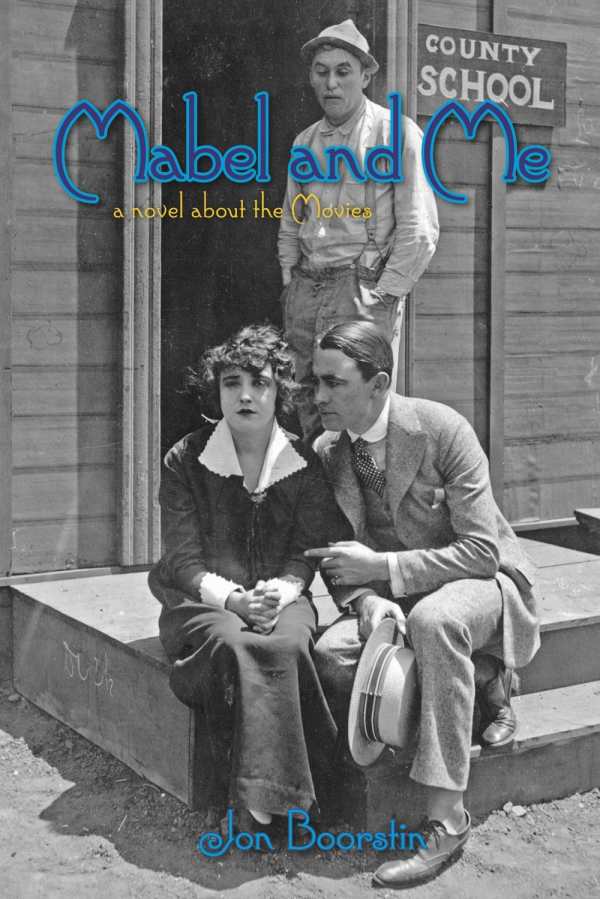Mabel and Me
A Novel about the Movies
While Mabel and Me is a love story, it is also a tragedy, tracing comedic actress Mabel Normand’s career through the eyes of a young man.
In his imaginative, highly readable novel, Jon Boorstin winds the reel back to days when Tinseltown was alfalfa fields and dirt roads and a place where a kid captured by movie magic could find a niche in Mack Sennett’s rough-hewn studio.
In 1912, almost-fifteen-year-old Jewish Jack Smith is taking chickens to the kosher butcher when he stumbles upon Mack Sennett and Mabel Normand inventing gags for one-reeler silent comedies. After a bit of patter—and offering the chickens for use in a gag—Jack finds himself employed by the crude, monomaniacal Sennett. Jack is a movie savant, a natural at capturing light on film and at editing. He also becomes the only one with a handle on Mabel Normand, a good-time girl and comic genius. Her skill with her craft—and her ambition—grows as she teaches Chaplin gags, partners with Arbuckle, and clashes with a man named Goldfish who decides his name should be Goldwyn.
Make no mistake: it’s Mabel, with her innocence, latent sexuality, and appetite for life, who’s the engine of the story, a tale that begins with perfect symbolism—Sennett, Mabel, and bit players larking through a comic reel production, accidentally killing all but one of Jack’s chickens in the process. In parallel arcs, Jack’s perspective matures from puppy love to clear-eyed reality as Mabel’s naturalness makes her millions, providing the seeds of destruction. Mabel leaps off the page, vibrant, ready to be “Best Ever,” and Jack, nicknamed Flicker, is her perfect foil, worshiping her, serving her, saving her. But Boorstin’s Mabel is incapable of love, for she cannot love herself. The plot rockets along, covering the hectic days on the lot (to get two reels in the can) and then veering off to describe drinking in dives, racing to the beach in a Stutz, and confronting cinematic history at the premier of Griffith’s The Birth of a Nation: “on the seventh day God made pictures and Griffith shows him how.”
The dialogue’s crisp vernacular, with short, declarative sentences, is laced with sardonic humor and keen observation. Boorstin, author of other books on Hollywood, knows his setting of dusty streets, bars, brothels, and beaches.
Cynical, melancholy, and hard-edged, Boorstin’s novel is superb, almost realistic reportage, and yet is full of the poignancy, human glory, and frailty that makes for great historical fiction.
Reviewed by
Gary Presley
Disclosure: This article is not an endorsement, but a review. The publisher of this book provided free copies of the book to have their book reviewed by a professional reviewer. No fee was paid by the publisher for this review. Foreword Reviews only recommends books that we love. Foreword Magazine, Inc. is disclosing this in accordance with the Federal Trade Commission’s 16 CFR, Part 255.

